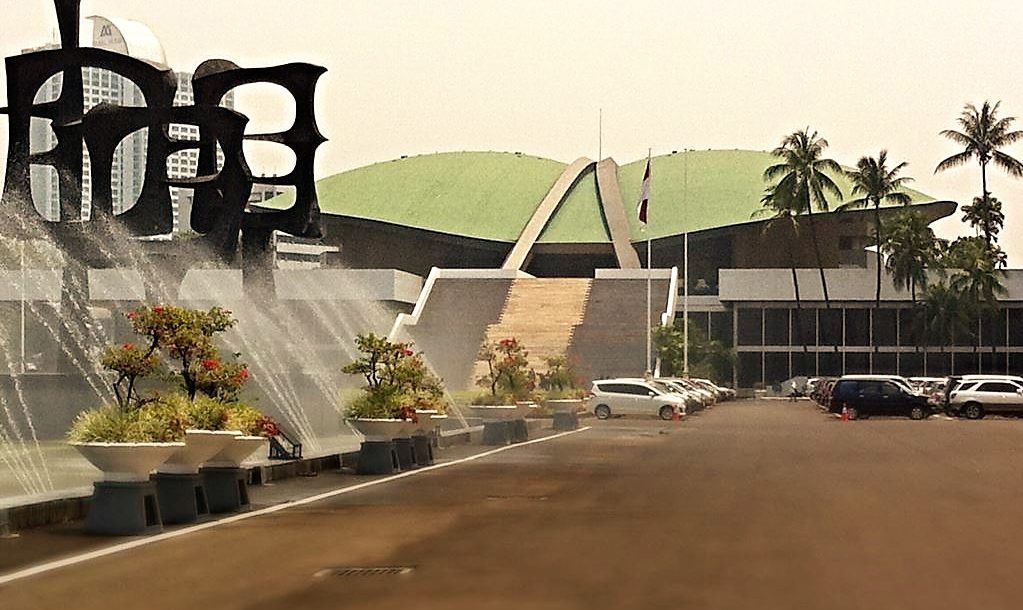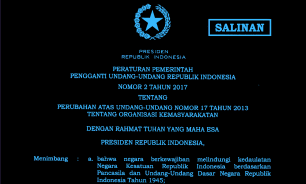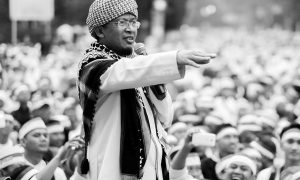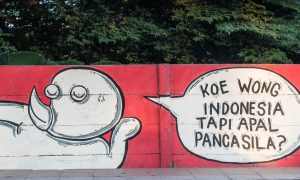Late last month, The Economist Intelligence Unit (EIU) issued its 2017 Democracy Index report. In what was a grim year worldwide for five broad categories of democratic indicators—electoral process and pluralism, functioning of government, political participation, democratic political culture, and civil liberties—the worst performing country was Indonesia.
According to the EIU’s democracy ranking system, the world’s largest Muslim-majority country dropped from 48th place in 2016 to 68th in 2017. Having peaked at a score of 7.03 out of 10 in 2015, Indonesia subsequently dropped to a 6.97 in 2016 and a 6.39 in 2017, making it a “flawed democracy”.
The report identifies “Indonesia’s minority crisis” as the cause of this colossal drop in form, as revealed by last year’s conviction of former Jakarta governor Basuki Ahok Tjahaja Purnama for blasphemy, and the 2017 Jakarta gubernatorial election campaign.
But as bad as 2017 was, 2018 might be even worse. Indeed, if racial and religious minorities were the notable casualties of 2017, the most notable of casualties for 2018 may be Indonesia’s LGBT community.
The debate
Over the past two years, Indonesia’s national legislature (Dewan Perwakilan Rakyat/DPR), has been debating approximately 800 proposed changes to the country’s national criminal code, the Kitab Undang-Undang Hukum Pidana (KUHP).
The present debate was set in motion on 5 June 2015 when President Jokowi issued a notice declaring the government’s preparedness to discuss the code’s revision over a two year period—a period that only concluded at the end of 2017.
I say “in this instance” because it is a debate not without precedent. The concept of an “authentically Indonesian draft criminal code” (RKUHP asli Indonesia) was conceived by the Indonesian Advocates’ Association (PAI) at its inaugural National Law Seminar in Semarang in 1963. There, PAI recommended that the scope of pre-existing prohibitions pertaining to state security, the economy, and moral decency be expanded. A drafting team was formed by the government a year later, which comprised legal experts from several prestigious universities. The team determined not to do away with the KUHP in its entirety, but rather to remove certain parts (namely Book III [Buku III] thereof) and provide an elucidation for the remaining provisions.
Subsequent government initiatives to effect greater amendments failed, meaning that the majority of today’s criminal code is still sourced from the Dutch colonial code, the Wetboek van Strafrecht voor Nederlandsch-Indie, which was enacted on 1 January 1918.
A century after its enactment and this may very well be the year that Indonesia’s criminal code is subjected to significant amendments. The effect those amendments may have on the civil liberties of certain minorities, however, has left human rights proponents with genuine reason for concern.
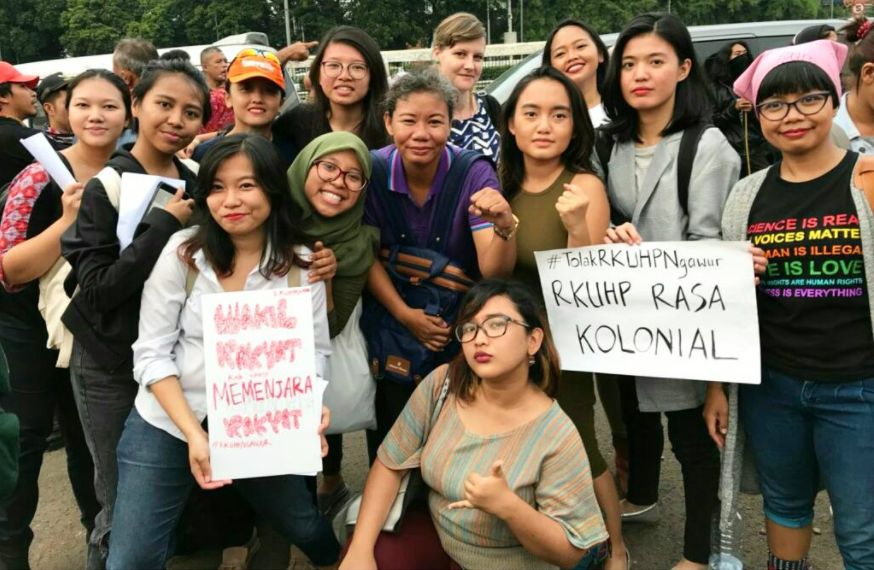
Protesting the proposed amendments to the KUHP in Jakarta, February 2018 (Photo: @nikenAwulan on Twitter)
RKUHP: the proposed amendments
Of the 800 odd proposed amendments, here I only address those amendments that would affect minority groups, namely Indonesia’s LGBT community, but concerns have also been raised about the effect these amendments could have on those from lower socio-economic backgrounds, and political opponents of the government.
Zina
A significant proposed amendment is to the current prohibition on zina, or extramarital intercourse. The prohibition on zina, as it stands in Article 284 of the KUHP, prohibits extramarital intercourse between a man and a woman. Under the proposed amendment, however, this provision would change to simply prohibit intercourse outside of marriage between any two persons, thereby criminalising homosexual intercourse, as well as any other intercourse out of wedlock.
Zina is also currently a “complaint offence” (delik aduan). This means that in order for someone to be charged for violation of the zina provision, an aggrieved party must first file a complaint with the police. For the purposes of zina, an aggrieved party is either the husband or wife of the alleged offender.
Under the amendments proposed by the legislature it appeared that zina would become a “normal offence” (delik biasa), meaning that either “aggrieved third parties” (pihak ketiga tercemar) or mere “concerned parties” (berkepentingan) could lodge a criminal complaint. While this was subsequently clarified to the confines of complaints from spouses, children, or parents, concerns that the scope of the provision will be abused and conflated with unrelated third parties remain.
The primary concern is that this provision could be applied more broadly to include anyone supposedly “aggrieved”, thereby granting hardline Islamist groups such as the Islamic Defenders’ Front (Front Pembela Islam/FPI) legislative grounds to pressure law enforcement to conduct raids on private premises.
As it stands, homosexuality is not illegal in Indonesia. The country’s anti-pornography statute (Law 44 of 2008 on Anti-Pornography), however, has been used as a legal foothold by hardliners to pressure law enforcement to conduct raids on premises in which groups of homosexual men are suspected of having congregated. A raid conducted last year on the Atlantis sauna and gym, for example, resulted in the arrest of 141 gay men – it was also ostensibly conducted pursuant to Indonesia’s anti-pornography statute.
It followed a similar raid made in 2016 where police, accompanied by FPI members, arrested 13 men for holding a “sex party” in a South Jakarta apartment. If the proposed zina amendment becomes law, the incidence of such raids, and broader persecution of the country’s gay population, will only increase.
Lewd behaviour between members of the same sex
Another proposed new provision is Article 495, which would criminalise “lewd conduct” (perbuatan cabul) in public between persons of the same sex. This proposal was recently criticised by PPP’s Arsul Sani not on the basis of which conduct it would criminalise, but for the prescribed maximum custodial sentence of 18 months—which he deemed inadequate.
In an interview with Jurnal Indonesia, Muslim Ayub, a politician from the National Mandate Party (PAN), went further. Ayub explained that his party is seeking either life imprisonment or the death penalty for perpetrators of any type of LGBT behaviour. Ayub didn’t stop at perpetrators of such behaviours though, even arguing that those who merely campaign for LGBT rights should be met with the same punishment.
Tifatul Sembiring, from the Prosperous Justice Party (PKS), has also proposed that the revised criminal code prohibit LGBT groups from organising, unionising, campaigning, and advertising. Tifatul told reporters recently that this was because LGBT behaviours, especially homosexuality, are not permitted by any religion in Indonesia or any traditional Indonesian custom. (He refrained, however, from promoting such heavy penalties as his colleagues had.)
Sani, Ayub, and Tifatul refrained, however, from addressing how such a prohibition would be reconciled with articles 28 and 28E(3) of Indonesia’s 1945 Constitution, both of which guarantee the right to freedom of assembly and association.
‘Religious values’
In 2018, majoritarian and puritan sentiment increasingly dominates Indonesian political discourse. References to “religious values” have become the default rhetoric for many current day politicians, as they seek to appeal to an Indonesian public that is becoming increasingly conservative and concerned with the “moral” behaviours of others.
These increasingly frequent references to religious norms as the appropriate basis for civil law are not without constitutional grounds. Article 28J(2) of the 1945 Constitution, in fact, prescribes “religious values” as a legitimate reason to derogate from otherwise non-derogable human rights. The Constitution does not, however, provide a definition for “religious values”, and so, in an increasingly majoritarian society, the term has been conflated with religious orthodoxy as defined by peak religious bodies such as the Majelis Ulama Indonesia (Indonesia’s Council of Ulama, MUI).
While this may seem to be a normative contradiction in terms—why does Chapter XA of the 1945 Constitution guarantee a raft of human rights only to subordinate those rights to religious values and orthodoxy?—this proposition has the support of the landmark 2010 decision of Indonesia’s Constitutional Court, which upheld the country’s controversial blasphemy law (Law 1 of 1965 on the Prevention of Abuse/Sullying of Religion) on the grounds that Indonesia is a law state (negara hukum) that prioritises “religious values” and the principle of Almighty God (Ketuhanan Yang Maha Esa), which constitutes the first principle of its state ideology, Pancasila.
So while homosexual intercourse remains legal in Indonesia, efforts to stamp out and ultimately criminalise homosexual behaviours have been on the agenda of many groups and politicians in Indonesia for some time.
Late last year, for example, Indonesia’s Constitutional Court, by the slightest of margins (5–4), rejected an application by the so-called Family Love Alliance (AILA) to amend the criminal code to criminalise both homosexual intercourse and pre-marital intercourse.
This application should have, at least in theory, been dismissed unanimously. Article 24C(1) of Indonesia’s 1945 Constitution limits the powers of the Constitutional Court to, among other things, reviewing the constitutionality of statutes (undang-undang). As Simon Butt and Tim Lindsey have written, article 24C(1) does not authorise the court to amend legislation—that is the authority of the legislature. That the court indulged the application for a period of 18 months, however, arguably reflects the political climate in contemporary Indonesia today, one where stridently homophobic rhetoric from politicians and other public figures is heard with increasing frequency.
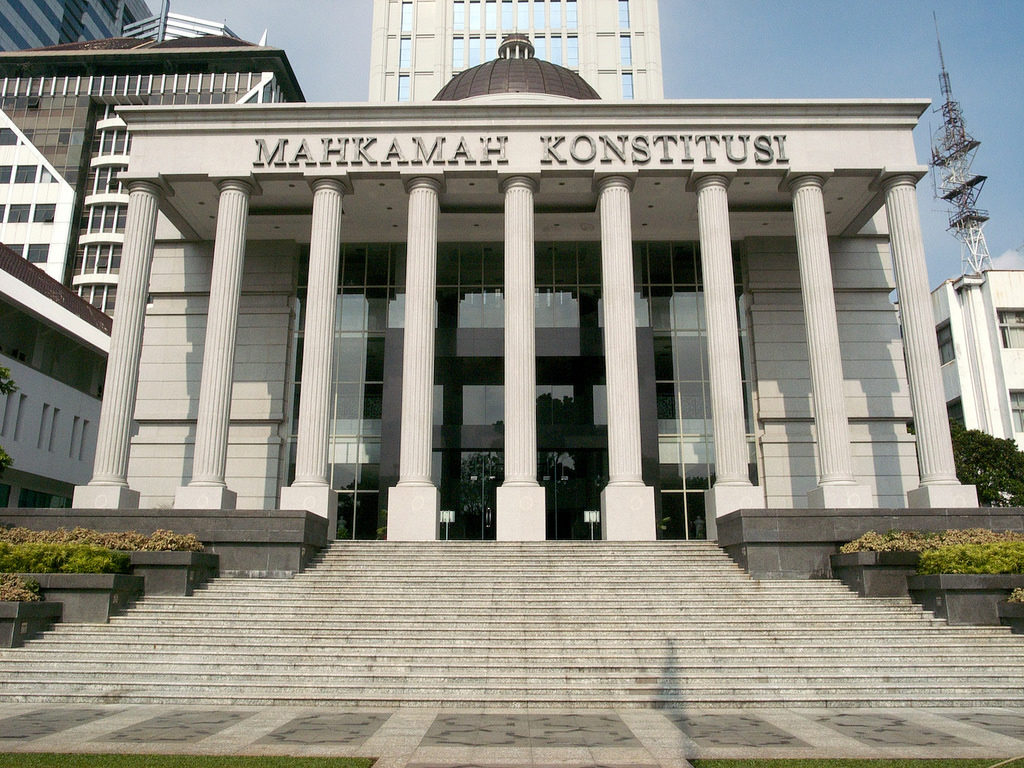
The Constitutional Court in Jakarta (Photo: Wikimedia)
Human rights guarantees
Human rights activists have understandably expressed concern that the proposed amendments to the KUHP unfairly target minority groups, not only the LGBT community itself but also those who fight for LGBT rights.
From a constitutional perspective, the proposed criminal code amendments appear to be untenable. Article 28I(2) of the constitution, after all, states:
Every person has the right to be free from discriminatory treatment, whatever the basis, and has the right to obtain protection from that discriminatory treatment.
Indonesia’s national human rights commission, Komnas HAM, has predictably stated that the criminal code should protect minorities in accordance with human rights standards. In an interview with Tempo magazine, the chairman of Komnas HAM, Ahmad Taufan Damanik, stressed the prejudicial effect these proposed amendments could have on the principle of equality before the law, a principle also enshrined in article 28D(1) of the 1945 Constitution. Damanik, citing the Yogyakarta Principles, issued by Komnas HAM in 2007, noted that a person’s sexual orientation is also a human right.
Jokowi forges a tool of repression
Indonesia's parliament has approved Jokowi's decree on mass organisations. Here's why the law threatens the freedoms of all Indonesians.
What lies in store?
Human rights are by no means politically neutral, as human rights scholar Jack Donnelly reminds us. Their realisation, therefore, generally requires a consolidated democracy, or what the EIU’s Democracy Index ranking terms a “full democracy”.
It may be that the laws actually passed differ significantly from the proposed amendments discussed above. But what is clear is that as long as the amended criminal code continues to target minority groups, Indonesia’s crisis of minority rights will only worsen. If the events of 2017 caused Indonesia to drop 20 places on the EIU’s Democracy Index ranking, the enactment of these proposed KUHP amendments almost guarantees a further drop in ranking, as doubts mount about the protection of minority rights, which are foundational to Indonesia’s claim to democratic status.
 Facebook
Facebook  Twitter
Twitter  Soundcloud
Soundcloud  Youtube
Youtube  Rss
Rss 